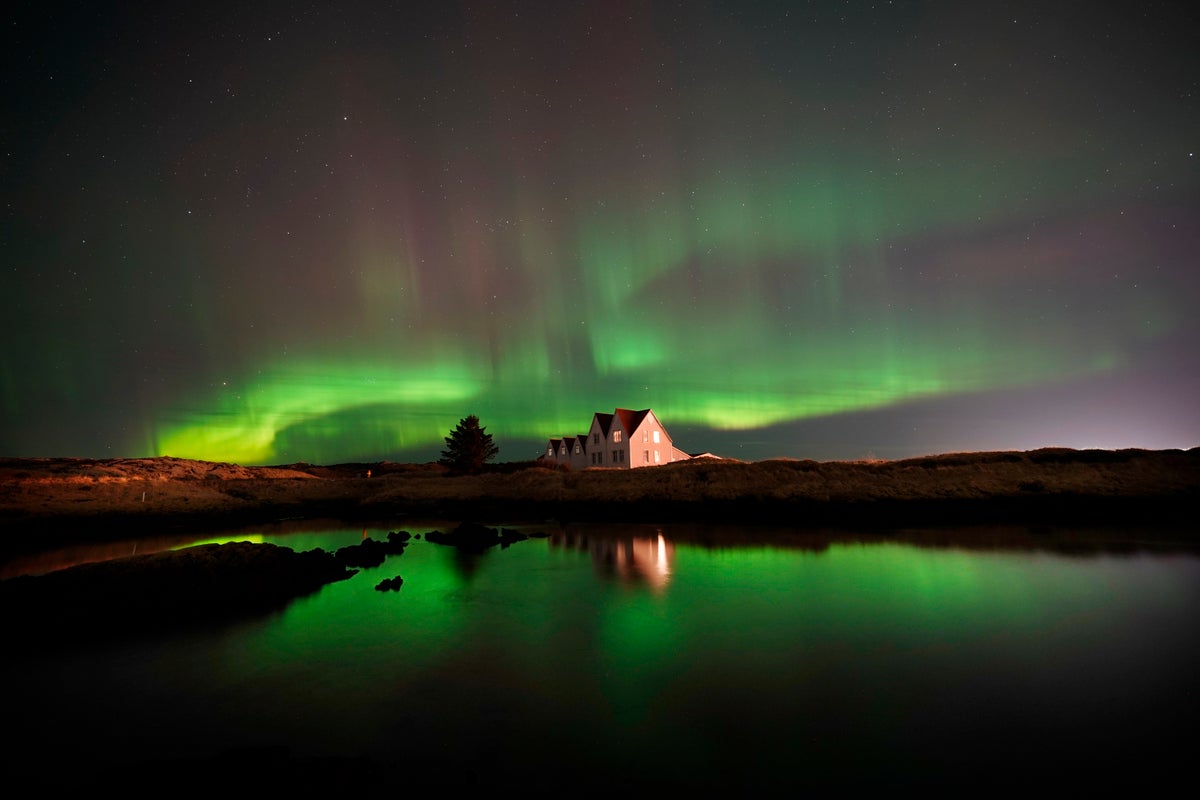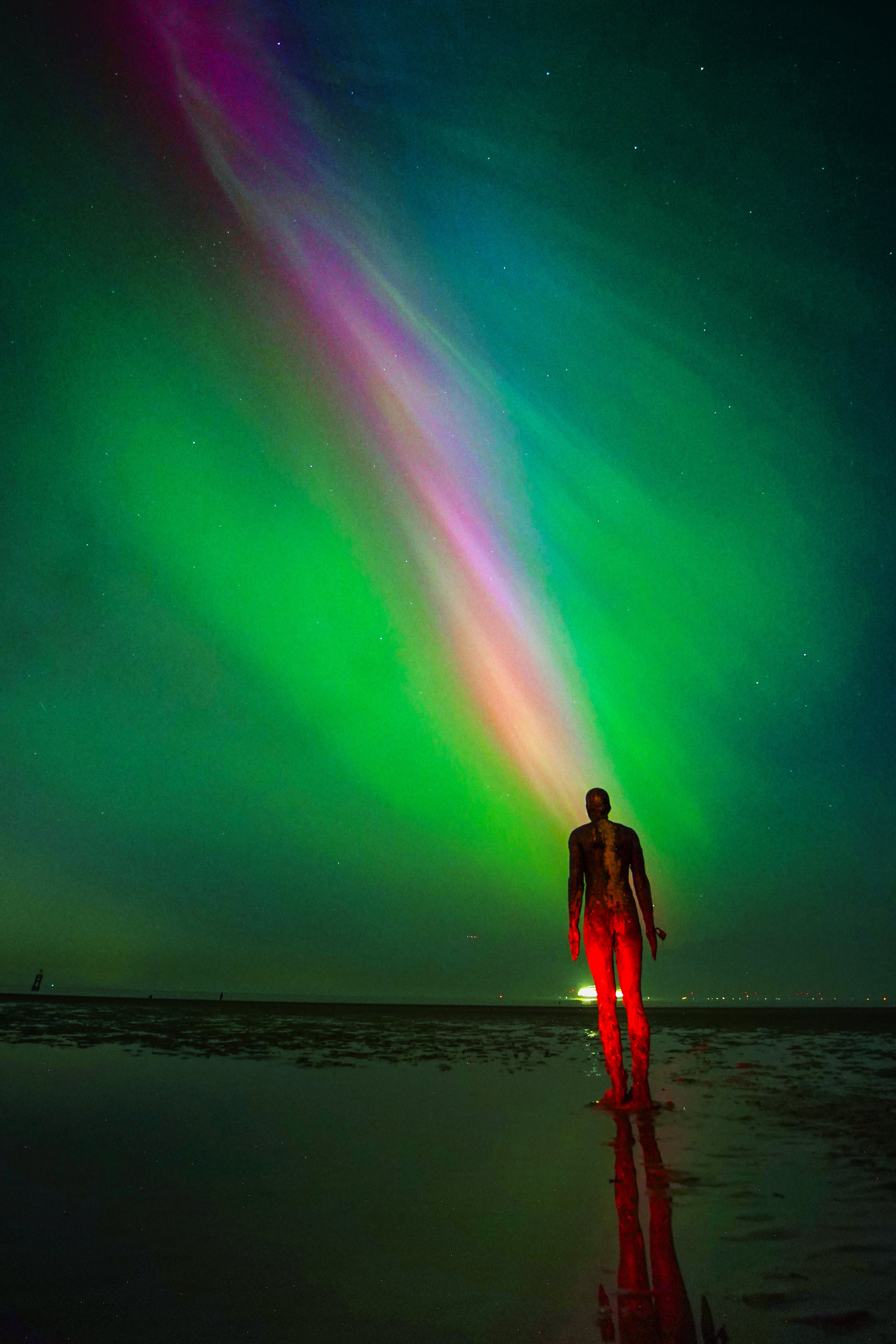
Last weekend people across the UK could look up at the sky and see the colourful strobes of the Northern Lights.
The rare phenomenon, known as the Aurora Borealis, was captured in photographs taken from across the country including Essex, Suffolk, Whitley Bay and Liverpool.
Large swathes of the sky lit up purple and green after a huge geomagnetic storm that sparked the display.
As space enthusiasts and meteorologists weigh up the science behind the lights being seen above the UK, what are the chances of catching the Northern Lights again?

Can I see it tonight?
Sadly for those who missed out on the phenomenon, it is unlikely that the Northern Lights will be making an appearance on Tuesday evening.
The Met Office’s space forecast, issued in the early hours of this morning, said: “No significant enhancements to the auroral oval are likely in the coming days.”
This was despite there being a small possibility earlier this week to spot the sights in northern Scotland, due to an increase in solar activity.

Will it be visible in the future?
Met Office space weather expert Krista Hammond said the sunspot region will be rotated back towards Earth in the next few weeks, paving the way for further geomagnetic storms and displays of the Northern Lights.
“The sunspot region will be coming back round onto the Earth facing side of the sun,” she said.
The sun is currently in the most active period of its 11-year cycle and Ms Hammond said the lights could be seen more frequently in years to come.
The forecaster downplayed the chances of a full repeat of last weekend’s display, but said more solar activity would mean a good chance of sightings “in the coming weeks, months and years”.
“It was such a unique set of circumstances that happened last weekend. The chances of the same sunspots doing the same thing again – It’s probably quite slim.
“I wouldn’t be surprised if it comes around and there’s some activity on it, but it won’t be I doubt, a repeat performance.”
Those who missed out may have a better chance of seeing the lights in early June, once the sun has rotated on its axis and the active sunspots are once again in the right position to fire at Earth.

What is the Aurora Borealis?
Aurora displays occur when charged particles collide with gases in the Earth’s atmosphere around the magnetic poles.
Prof Haswell, head of astronomy at the Open University, explained how different colours within the aurora are formed and said: “Green comes from oxygen which is about 80 to 250 miles above the earth’s surface.
“The purple, blue and pink comes from nitrogen and when you get a very strong aurora sometimes you see a sort of scarlet red, and that comes from oxygen which is higher in the earth’s atmosphere, at an altitude of about 180 miles.”







